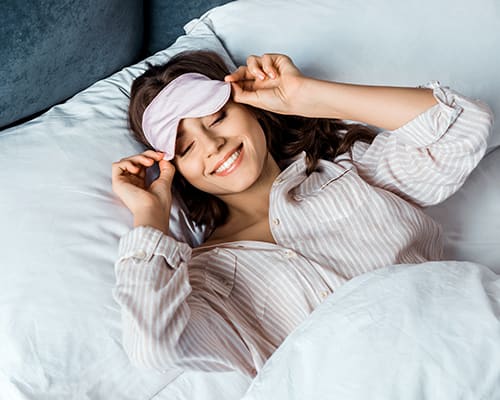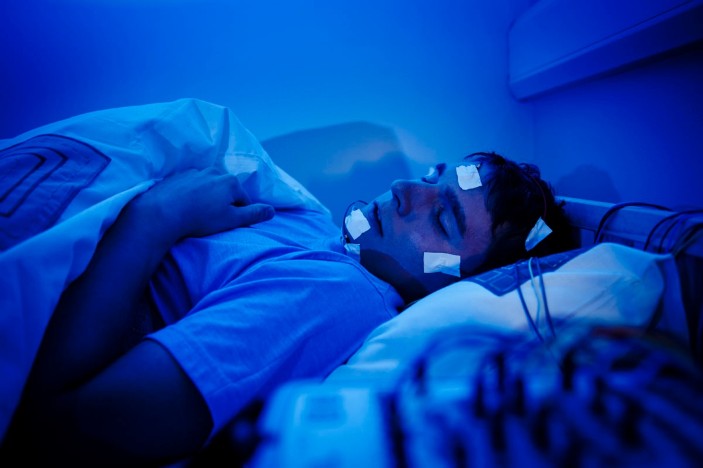Experienced Insomnia Specialist - Personalized Look After Better Sleep
Experienced Insomnia Specialist - Personalized Look After Better Sleep
Blog Article
Effective Treatment Solutions for Taking Care Of Rest Disorders and Enhancing Peaceful Sleep
In the realm of medical care, the administration of rest disorders and the mission for restful sleep are crucial parts of overall wellness. As we browse the detailed landscape of sleep conditions and look for to boost our sleep experience, a much deeper understanding of these therapy solutions might hold the key to opening a more refreshing and satisfying corrective journey.
Cognitive Behavior Modification for Sleeping Disorders (CBT-I)
Cognitive Behavior Treatment for Sleeping Disorders (CBT-I) is an organized, evidence-based therapy method that concentrates on addressing the underlying aspects adding to sleep disruptions. This sort of treatment intends to change behaviors and thoughts that intensify sleep problems, eventually advertising healthy sleep patterns. CBT-I generally entails a number of essential parts, including cognitive therapy, rest limitation, stimulus control, and sleep health education.
Cognitive therapy aids people determine and change adverse idea patterns and ideas regarding sleep that may be hindering their ability to drop or remain asleep. Rest constraint includes restricting the amount of time spent in bed to match the person's real rest duration, consequently enhancing sleep efficiency (insomnia counseling). Stimulus control techniques help develop a strong association between the bed and rest by encouraging people to go to bed only when drowsy and to avoid taking part in stimulating tasks in bed
Additionally, sleep health education and learning concentrates on creating healthy sleep behaviors, such as maintaining a regular sleep schedule, producing a relaxing bedtime regimen, and enhancing the sleep environment. By dealing with these aspects comprehensively, CBT-I uses an efficient non-pharmacological treatment for managing sleep problems and enhancing total sleep quality.
Sleep Health Practices
Having developed the structure of cognitive restructuring and behavioral modifications in attending to sleeplessness via Cognitive Behavioral Treatment for Sleeplessness (CBT-I), the emphasis currently moves in the direction of checking out important Rest Hygiene Practices for preserving optimum sleep quality and total well-being.
Rest health practices incorporate a variety of habits and ecological elements that can considerably impact one's capacity to drop off to sleep and remain asleep throughout the night. Constant sleep and wake times, developing a relaxing going to bed routine, and maximizing the rest atmosphere by maintaining it dark, quiet, and cool are vital parts of good rest health. Restricting direct exposure to displays prior to bedtime, staying clear of stimulants like caffeine near to bedtime, and participating in normal physical task throughout the day can also promote much better sleep high quality.
Furthermore, practicing relaxation methods such as deep breathing workouts or reflection prior to bed can help relax the mind and prepare the body for rest. By integrating these sleep hygiene practices into one's day-to-day regimen, people can establish a healthy sleep pattern that supports restful rest and general health.
Relaxation Strategies and Mindfulness
Implementing leisure strategies and mindfulness methods can play a critical role in promoting a sense of calm and advertising top quality rest. insomnia counseling. These methods intend to silent the mind, minimize anxiety, and create an ideal atmosphere for restful rest. One widely exercised technique is deep breathing exercises, where individuals concentrate on slow-moving, deep breaths to unwind the mind and body. Progressive muscular tissue relaxation involves tensing and afterwards launching each muscle team, promoting physical relaxation. In addition, assisted imagery can assist transfer people to a calm area in their minds, aiding in stress and anxiety reduction and improving rest quality.
Mindfulness methods, such as reflection and yoga exercise, are also effective in promoting relaxation and enhancing sleep. Mindfulness motivates people to remain present in the moment, releasing fret about the past or future. By including these techniques right into a going to bed regimen, people can signify to their bodies that it is time to unwind and prepare for sleep. On the whole, integrating leisure strategies and mindfulness methods can considerably add to managing rest disorders and boosting total rest top quality.

Medicine Options for Sleep Disorders
After exploring leisure techniques and mindfulness techniques as non-pharmacological treatments for enhancing sleep quality, it is necessary to take into consideration medication choices for people with sleep problems. In instances where way of living changes and therapy do not provide adequate alleviation, medication can be a useful device in handling sleep disruptions.
Typically recommended drugs for sleep conditions include benzodiazepines, non-benzodiazepine hypnotics, antidepressants, and melatonin receptor agonists. Benzodiazepines, such as diazepam, are sedatives that can assist induce sleep, yet they are generally suggested for temporary usage due to the risk of dependancy. Non-benzodiazepine hypnotics like zolpidem are additionally made use of to deal with insomnia and have a lower danger of reliance contrasted to benzodiazepines. Antidepressants, such as trazodone, can be helpful for individuals with co-occurring depression and rest disturbances. Melatonin receptor agonists, like ramelteon, target the body's natural sleep-wake cycle and can be practical for regulating rest patterns.
It is critical for people to seek advice from with a doctor to figure out the most appropriate medicine alternative based on their certain sleep problem and case history.
Light Treatment for Circadian Rhythm Law
Light treatment, additionally called phototherapy, is a non-invasive therapy approach made use of to control circadian rhythm sleep circadian rhythms and enhance sleep-wake cycles. This therapy includes direct exposure to intense light that mimics natural sunshine, which assists to reset the body's biological rhythm. By subjecting people to specific wavelengths of light, commonly in the morning view it or night depending on the wanted effect, light therapy can properly readjust the body clock to promote wakefulness throughout the day and boost peaceful sleep in the evening.
Study has actually revealed that light therapy can be particularly valuable for people with body clock disorders, such as postponed sleep stage disorder or jet lag. It can likewise be useful for those experiencing seasonal depression (SAD), a kind of anxiety that commonly happens throughout the cold weather when all-natural light exposure is minimized. Light treatment is generally well-tolerated and can be used along with various other treatment techniques for sleep disorders to optimize outcomes and improve overall sleep quality.
Conclusion
Finally, reliable therapy services for taking care of sleep disorders and improving relaxed sleep consist of Cognitive Behavioral Treatment for Sleeping Disorders (CBT-I), sleep hygiene methods, relaxation techniques and mindfulness, medication options, and light treatment for body clock guideline. These approaches can aid people enhance their sleep quality and overall health. It is necessary to speak with a doctor to establish one of the most appropriate technique for addressing sleep concerns.
As we browse the snoring specialist near me detailed landscape of rest disorders and seek to improve our rest experience, a much deeper understanding of these therapy options might hold the trick to unlocking an extra rejuvenating and meeting restorative trip.
Sleep constraint includes restricting the quantity of time invested in bed to match the individual's actual sleep period, consequently boosting sleep efficiency. Consistent sleep and wake times, producing a relaxing bedtime regimen, and maximizing the sleep environment by maintaining it dark, quiet, and cool are essential elements of great rest hygiene. Light treatment is typically well-tolerated and can be used in combination with other therapy techniques for sleep disorders to enhance outcomes and enhance overall rest quality.

Report this page